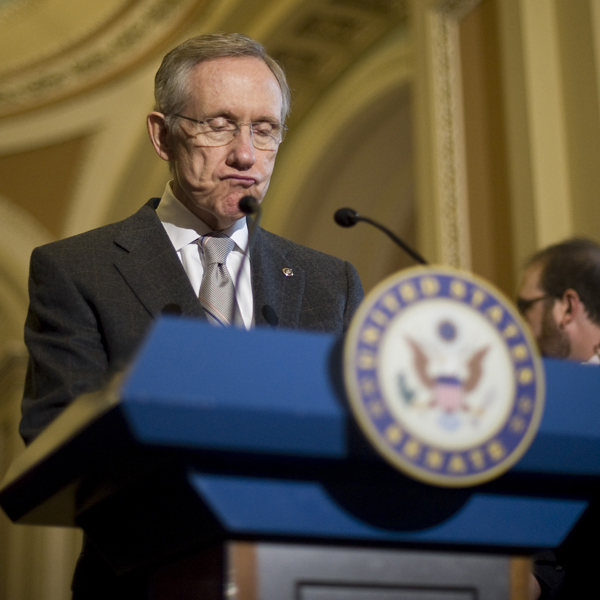Two progressive Democrats joined 39 Republicans this evening to block a final vote in the Senate on Wall Street reform, putting the two parties in the same position they found themselves in nearly one month ago when the entire GOP held together, for several days, to delay the bill from coming to the floor.
Now, just as then, Democrats will bring to bear a relentless campaign of public pressure on key Republicans and private arm-twisting on hold-out Democrats, in order to corral the 60 votes they need to end debate on the bill. And they’ll have an opportunity to do just that tomorrow, when Senate Majority Leader Harry Reid holds a revote.
Back in April, though, that effort led to a broad capitulation by the GOP. This time, Republican senators and aides say it will only net them the handful votes they need to get over the top. One top GOP aide predicted the filibuster will break tomorrow.
Failing that, Democrats will have to figure out a way to placate either Sen. Maria Cantwell (D-WA) or Sen. Russ Feingold (D-WI), both of whom joined the filibuster. Cantwell has been denied a vote on an amendment that would restore firewalls between investment and commercial banks, and–more importantly, she says–is demanding that language requiring derivatives to be traded more transparently be tightened.
But why did the vote fail? Reid clearly believed he had 60 votes lined up. Even Sen. Byron Dorgan (D-ND), who had threatened loudly to filibuster the bill, voted for cloture, telling reporters that a procedural vote on his signature issue had mollified him.
Explanations vary, but everyone agrees that at least one–if not more–Republicans who intended to vote yes ultimately chose to hold out for the time being. And it didn’t help matters that Sen. Arlen Specter (D-PA), who suffered a career-ending primary defeat last night, was a no-show today.
The vote itself dragged on for nearly an hour, to accommodate a tardy Sen. Mark Begich (D-AK). During that time, Reid pleaded with Cantwell and Sen. Scott Brown (R-MA), to help bring debate on the bill to an end. Brown had communicated his intent to vote with the Democrats, and publicly waffled on the floor before finally voting no.
At an impromptu press conference after the vote, Reid, without naming names, told reporters “a senator broke his word with me.”
Brown himself told reporters he moved into the no column because he thought concerns he’d voiced about the bill were not, in the end, addressed. That take was echoed by a Republican aide. But Sen. Bob Corker (R-TN) told reporters he believes the unexpected opposition by Feingold and Cantwell punctured the air of inevitability about the bill, and freed up a few Republican swing votes to vote no.
“When they saw there were two Democrats that voted against it, it sort of changed the dynamic on the floor,” Corker said.
Democrats will have better odds tomorrow, after Specter returns from Pennsylvania. And Democratic leadership will be pressing both Cantwell, Feingold and Brown as well as other on-the-fence Republicans like Sen. George Voinovich (R-OH) to help break the impasse. They’ll need at least one of those four to switch if they hope to avoid a repeat performance later in the week.






